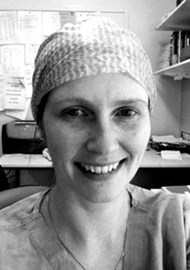A recent Statement from the Association of Surgeons in Training (ASIT) stated that in 2011 there were 17 otolaryngology trainees in Less Than Full Time training (LTFT) [1]. Otolaryngologists in LTFT posts (17/151) is the largest group after general surgery (65/151). ASIT looked into the issue along with pregnancy and maternity.
Concerns had been raised by the Royal Surgical College of England (RCSEng) that surgical trainees were not getting adequate access to LTFT and questions have been raised about the quality of training within these posts and their suitability for trainees to achieve both competencies and adequate experience. This article aims to explore the process of applying for LTFT and discuss the experience of applying and being trained under less than full time working conditions.
Most trainees in LTFT posts are female (95%), the concept of LTFT is theoretically gender-neutral and should be equally accessible to males as well as females [2]. To be eligible, there must be a “well founded reason” for less than full time work either; disability or ill health, being a carer for children, looking after an ill or disabled partner, relative or other dependent (Category 1).
Category 2 includes unique opportunities for personal or professional development for example training for national or international sporting events, religious commitment involving training for a particular role which requires a specific time commitment, non-medical professional development such as management courses, law courses, fine arts courses. Another well-founded reason may be considered by the Postgraduate Dean in consultation with the General Medical Council (GMC).
According to the Gold Guide [3] LTFT aims to “retain within the workforce doctors who are unable to continue their training on a full-time basis, promote career development and work / life balance for doctors training within the NHS, ensure continued training in programmes on a time equivalence (pro-rata) basis and maintain a balance between less than full-time training arrangements, the educational requirements of both full and part-time trainees and service need”.
The Joint Committee on Surgical Training (JCST) recommend that a trainee considering LTFT discuss their intention with the Training Programme Director (TPD) and gain their support, contact their Deanery / Local Education and Training Board (LETB) and ask what applications are needed to gain their support as well as make an application to the Specialty Advisory Committee (SAC) to support LTFT training, this involves completing a LTFT training form which includes signatures from the trainee, the Training Programme Director (TPD) and your Postgraduate Dean alternatively written confirmation from all that you have their support, an applicant will also need to include details of what percentage of training already completed, a proposed timetable along with dates and an up to date Curriculum Vitae. Any further changes to training schedule have to be submitted as the final date for Certificate of Completion of Training (CCT) may change accordingly.
Claire McClarnon (CM), and Emma McNeil (EM) talk about their experiences with LTFT that began after two years as full time trainees in the Northern Deanery.
At what point in your career did you decide to pursue less than full time training?
CM I went back full time after my first baby and found it very difficult and wasn’t happy with either home life or work so chatted to Ian Johnson who was TPD at the time who was so supportive and he actually suggested LTFT! – never looked back.
EM I decided I wanted to go part-time while I was on maternity leave with my first child. I’d completed just over two years as an SpR. I had been asked if I was thinking about it as Claire was already part-time but it wasn’t an automatic assumption by everyone that I would.
Who did you have to speak to about the process?
CM Mostly HR and deanery once had ok from TPD.
EM Sean Carrie was the Programme Director at the time – I e-mailed him, and then went in for a chat and that was it really. He was very supportive and advised me to speak to the deanery. Claire had done the initial work already so I just slipped into the gap.
Was the process transparent and easy to navigate? If not what were the difficulties encountered?
CM There was an application form I downloaded from the deanery website and submitted it -so actually very straightforward.
EM It was very easy to sort out. The information and paperwork was on the deanery website and was straightforward to access and complete. The staff at the deanery were well-informed and helpful. I didn’t encounter any difficulties and I haven’t been aware of any of my friends in other specialities having problems either. You have to confirm the reasons for continuing to train flexibly after a certain amount of time (possibly five years?)
How did you find the process of organising less than full time training? How long did it take for approval? What were the obstacles if any?
CM It took three months from submitting application form and also getting a new CCT date from JCST. I took responsibility for developing my 60% timetable and as long as local department were happy with it then TPD agreed. It was slightly awkward the fist year I worked LTFT as I was part time in a full time post as the deanery had no money to fund a supernumerary post so the receiving department lost out on some service provision however no one made me feel bad for it.
EM I didn’t find any obstacles to the process and was back at work when originally planned, in a part-time post.
Were there any difficulties in achieving agreement from the deanery / programme director / SAC?
CM Not at all, however you need to be on the ball yourself as the JCST did manage to miscalculate my CCT date, which I didn’t realise till too late!
EM The programme director and deanery were very supportive throughout and I think it also worked to their advantage as it meant they got an extra trainee, and Claire and I counted as 120% of a trainee, and probably worked more than that in reality.
Have there been any difficulties that you have encountered with less than full time training?
CM I would say the only two issues are:
- You can go a while between procedures for example there could be a two year gap between otology jobs so you could de-skill, but again this goes down to careful planning with regards to rotations and timetable with your TPD to avoid this.
- Seeing your full-time colleagues pass ahead of you can be frustrating, but training goes by quick enough and I feel more experienced for slowing it down.
EM The length of training means that you can go for significant lengths of time not being exposed to certain sub-specialities, depending on who you are working with and can feel like you are de-skilling.
Have there been any negative attitudes from colleagues or seniors?
CM Only once but it wasn’t a big issue at the time.
EM None at all.
If you did a job share – were there any benefits / disadvantages to this?
CM Definitely, it was nice to share experience with someone and it also allowed full service commitments to be met.
EM I think it worked well. It helped that we were at the same stage and were good friends with similar work ethics, which also made it easier for the people training us, as they didn’t have to adapt their teaching methods massively depending on which day of the week it was. We got a lot out of working together, doing exams at the same time etc. It might have been nicer to been called by the right name more often…
Did you find any difficulties when it came to ARCP / RITA / CCT?
CM No, once again you make sure the RITA (now Annual Review of Competence Progression) panel understand your position and demonstrate pro-rata experience.
EM The only difficulty was due to the length of my training and still being a Calman / RITA trainee when the CCT criteria had changed to ARCP-based ones. It shouldn’t be an ongoing issue for trainees for much longer.
Would you recommend it?
CM Definitely.
Any advice for other trainees thinking about pursuing LTFT?
CM Read up and talk over with your TPD and / or a senior colleague who you think would be supportive. Find someone who has done it and talk to them.
EM Definitely. It’s taken a long time to get where I am now, and I still wish I could spend more time with the kids. Being full-time at the minute has made me appreciate what a good decision it was being part-time before.
Not everyone thinks that the prospect of LTFT will work for them. Lakhbinder Pabla (ST4 Northern Deanery), currently on maternity leave after the birth of her second child says “I did look into it a bit and was put off a little by a couple of things. We change jobs so often and it’s hard to get three full days together – the rota can be quite varied with half days and often you find that you never leave on time so could end up being in for virtually a whole day but deemed part time. In order for me to come back full time, I’m very lucky that my husband is going part time and supporting me through the training”.
Few males take up the opportunity for LTFT but it has happened within our specialty and the six months’ experience was a valuable one for him and his family.
Helpful links
Article by Alex Roper Otolaryngology Trainee in the North West Deanery:
http://www.nwpgmd.nhs.uk/
content/lifestyle-profiles-less-full-time-training
Deanery home pages (all should have information about the process)
http://www.rcsi.ie/files/surgery/docs/
20140407123804_Guide%20to%20
Flexible%20Training%20Nov.pdf
http://www.rcsed.ac.uk/training-careers/
postgraduate/less-than-full-time-training.aspx
Web page for RCSEng Flexible Working Advisor Miss Claire Murphy Consultant Breast and Reconstructive Surgeon, St James Hospital, Leeds:
http://surgicalcareers.rcseng.ac.uk/
flexible-working/flexible-working-advisor
References
1. ASIT. Pregnancy, maternity leave and less than full-time training during surgical training. London: Association of Surgeons in Training 2014. June 2014.
2. Jones MM, J Thomas, S. Flexible training has matured. 2008:
http://careers.bmj.com/ careers/advice/view-article.html?id=3062
Last accessed July 2014.
3. COPMeD. A reference guide for postgraduate specialty training in the UK – The Gold Guide In: Health Do, editor. 5th ed. London 2014. p.127.






